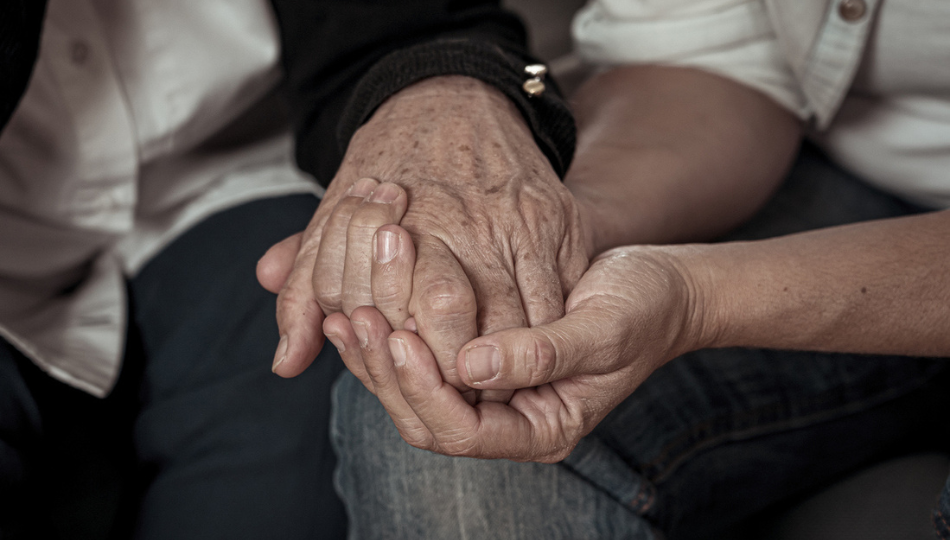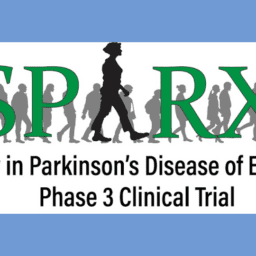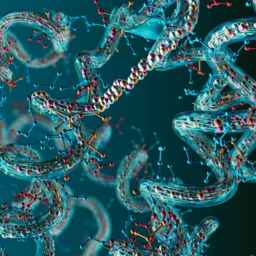We recently heard from the spouse and care partner of a person with Parkinson’s who had passed away unexpectedly. What she told us was so important that we wanted to share it with you, along with some research and recommendations from Parkinson’s experts. Here’s an excerpt of what she had to say:
“After his death, my daughter found information regarding the limited research on sudden unexpected death from Parkinson’s (SUDPAR). I can’t help but wonder — had we seen or heard about this earlier, might our actions have been different in ways that could have helped prevent his untimely death?
We thought my husband was dealing with his frequent constipation the night he died. I don’t think anyone would be as surprised by his death as he might have been! Perhaps with more education regarding SUDPAR, he would have taken better care of himself, or I would have nagged more. Perhaps there is not enough information regarding SUDPAR to warrant the time. Still, if there are strategies (like drinking more water) that not only help symptoms typical for Parkinson’s but could also help prevent SUDPAR, it might be worth the time.”
We believe it’s absolutely worth the time and are saddened by their loss.
The good news is that while it’s correct that research on SUDPAR is limited, there are strategies that can help reduce your risk. In this article, we’ll explain what is currently known about sudden unexpected death in Parkinson’s (SUDPAR) and recommendations from experts about minimizing risk.
SUDPAR, SUD, and SCD
SUDPAR refers to the unexpected death of a person with Parkinson’s without a satisfactory cause of death determined by autopsy. To understand it more fully, it’s helpful first to discuss a couple of related acronyms.
The first is SUD, sudden unexpected death. This term has been used for thousands of years and was first coined by Hippocrates, the “father of medicine.” As scientific and medical understanding has progressed, SUD has come to be closely tied with SCD, or sudden cardiac death (SCD). SCD is typically defined as “unexpected death within one hour of the onset of a change in clinical status as the result of cardiovascular events in a person with or without preexisting heart disease.” However, SUD is not always tied to cardiovascular issues. Respiratory and central nervous system (CNS) diseases have also been found to be leading causes.
Research has discovered no single cause of sudden unexpected death in Parkinson’s, and the mechanisms of SUDPAR remain unknown. However, research does suggest that cardiac abnormalities and autonomic dysfunction often play key roles. This association is significant because research also indicates that Parkinson’s itself can increase cardiovascular abnormalities.
A 2018 study exploring the connections between the heart and Parkinson’s reported that “there is a significant body of literature demonstrating involvement of the heart in [Parkinson’s].” This cardiac “involvement” in Parkinson’s includes everything from cardiac autonomic dysfunction to cardiomyopathy, coronary heart disease, arrhythmias, conduction defects, SCD, and SUDPAR.
Other connections between SCD and Parkinson’s can be seen in the prospective studies that found that SCD rates range from 50 to 100 cases per 100,000 in the general population and in higher percentages among people living with specific acute or chronic neurological conditions like Parkinson’s. These statistics support the idea that people with Parkinson’s may be at an increased risk of SCD and SUDPAR.
More research has been conducted on the rates of SCD than SUDPAR. Globally, SCD claims more than seven million lives each year. Studies specific to SUDPAR show that “a non-negligible number” of people with Parkinson’s die of sudden death. One of the most recent, a retrospective autopsy study published in 2014, found that SUDPAR may be the cause of death in up to 25 percent of people with Parkinson’s.
The key takeaway from the research is not to panic or become fearful. Instead, like everything related to Parkinson’s, a disease that never looks the same from person to person, the takeaway is to understand the connections between heart health and Parkinson’s so you can take action to minimize your risks of SUDPAR.
How can I reduce my risks of SUDPAR?
More studies are needed to help researchers and clinicians understand the causes, mechanisms, and risk factors of SUDPAR and what preventative strategies are most effective. In the meantime, experts say that when it comes to SUDPAR, “the best approach is to try to prevent possible cardiac abnormalities” in people with Parkinson’s. Here are ten actions you and your care team can take to do just that.
- Ask your provider to conduct a comprehensive cardiovascular medical history, including any possible family history of SUDPAR.
- Make sure to undergo regular, complete physical examinations.
- Reduce well-known cardiovascular risk factors, such as smoking, obesity, high blood pressure, hyperglycemia, high cholesterol, and alcohol consumption.
- Boost your cardiovascular health through regular aerobic exercise, a healthy diet, and minimizing stress.
- Advocate for routine cardiovascular screenings, including blood pressure checks, fasting lipoprotein profiles (cholesterol screenings), and blood glucose tests. Other cardiovascular screenings you may ask for include an electrocardiogram (ECG or EKG), which is used to check your heart’s rhythm and electrical activity; Holter-monitoring when you wear a small device that records your heart’s rhythm; and echocardiography, which checks your heart rhythm and how blood is moving through your heart’s chambers and valves.
- If you have been diagnosed with any cardiovascular abnormalities, be sure to visit your cardiologist regularly. If possible, connect them with your neurologist so your providers can work together to develop the best treatment plan for you.
- Drink adequate amounts of water each day. Parkinson’s experts stress the importance of hydration to reduce the risks of SUDPAR. Water is one of six essential nutrients and a key way to maintain proper electrolyte balance in your body, which is needed to keep your heart pumping strongly.
- Eat fish. Studies have indicated that omega-3 polyunsaturated fatty acids n-3 PUFAs could benefit people with Parkinson’s because of their anti-inflammatory and metabolic properties. Other research has suggested that n-3 PUFAs lower the risk of sudden unexpected death in epilepsy, which leads Parkinson’s experts to believe it may also reduce the risks of SUDPAR.
- Take steps to manage orthostatic hypotension (OH). OH is a sustained fall in blood pressure that happens within three minutes of standing. It can reduce blood flow to organs above the heart, most notably the brain, and its symptoms can profoundly impact your quality of life and may increase your risks of SUDPAR. OH and nOH (neurogenic orthostatic hypotension), which are caused by dysfunction in the autonomic nervous system and cause people to feel faint when they stand or sit up, are common in Parkinson’s. If they are symptoms you experience, talk to your care team and take action to manage and minimize them.
- If you live in a country where domperidone is approved for use, be sure to talk about its risks if your physician is considering adding domperidone to your drug regimen. Several studies exploring possible causes of SUDPAR have investigated the role of domperidone, a dopamine agonist not approved for use in the US but sometimes prescribed in other countries to treat nausea and vomiting. A study in the early 2000s explored the cardiovascular effects of domperidone in people with Parkinson’s who were treated with continuous subcutaneous infusion of apomorphine and found that both blood pressure and heart rate increased significantly during 24 hours of domperidone treatment. Later studies reported that while “no definitive conclusions can be drawn about [domperidone’s] safety…doses above 30 mg/daily should only be considered with special caution [due to] its potential cardiotoxic effects.” Other research supports the idea that domperidone may significantly increase the risk of SCD or SUDPAR.
While SUDPAR is scary to think about, it’s essential to remember that your actions can have real impacts on reducing your risks. Talk to your care team, take preventive steps to stay heart healthy, and stay positive in light of its possibility. Doing so can help you live well with Parkinson’s today and in the future.
Learn More about What to Expect as Parkinson’s Progresses
Everyone’s experience with Parkinson’s is unique, and so is everyone’s experience with its progression. However, because we know there are many questions about the progression of Parkinson’s and because there are common challenges and complications that can arise when a person has been living with Parkinson’s for many years, we’ve compiled a collection of resources to address these topics. Here, you can learn more about changing and/or increasing symptoms, cognitive decline, hallucinations, end-of-life planning, and more.

















